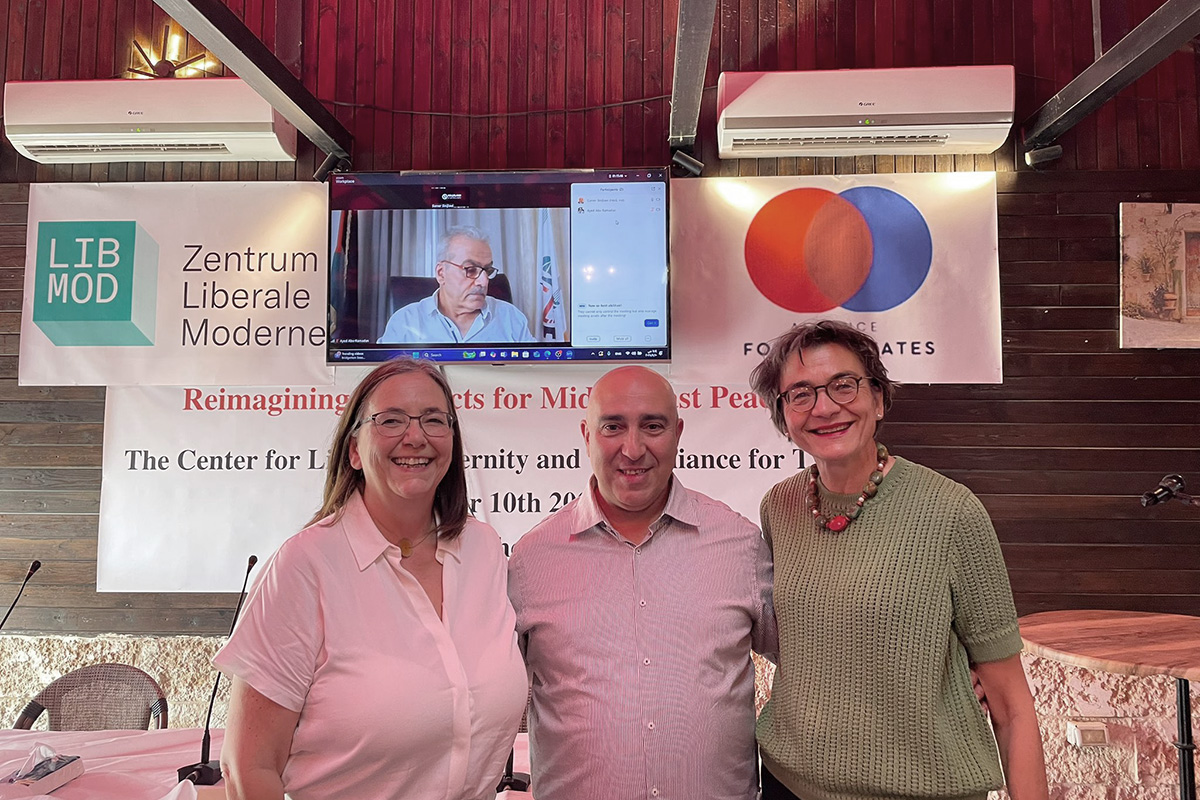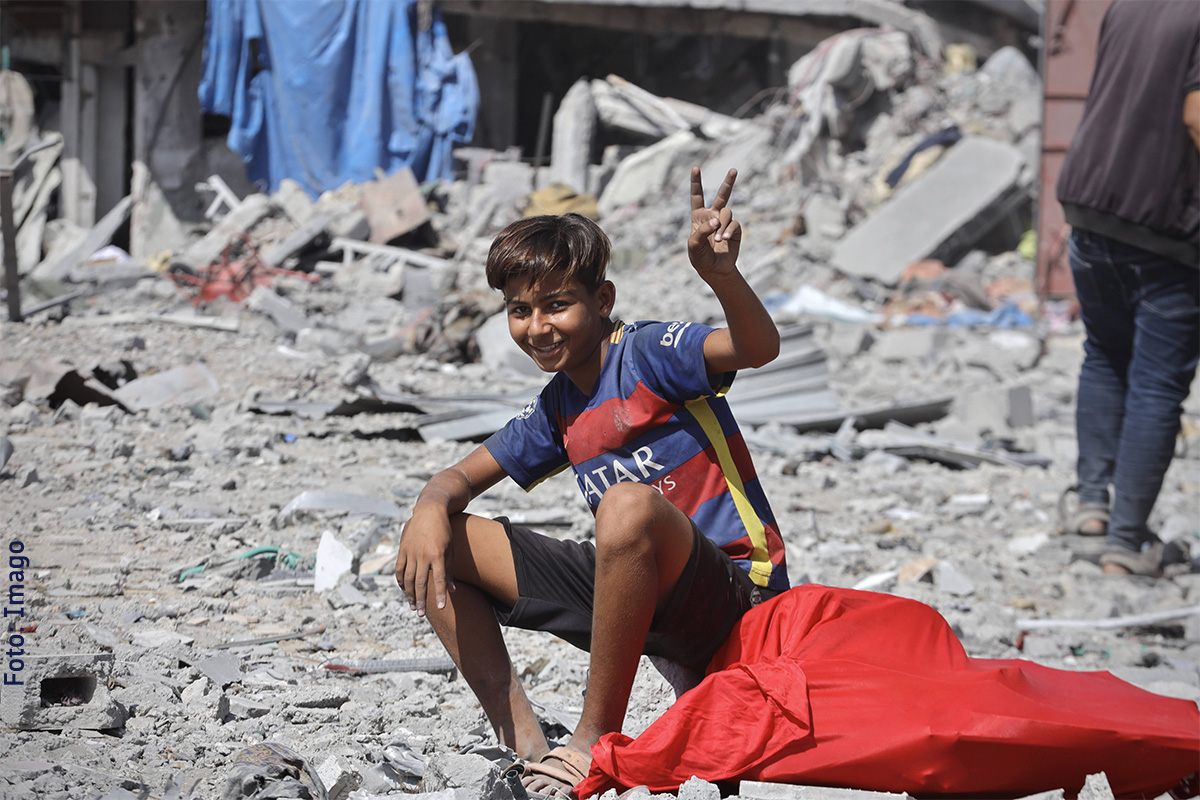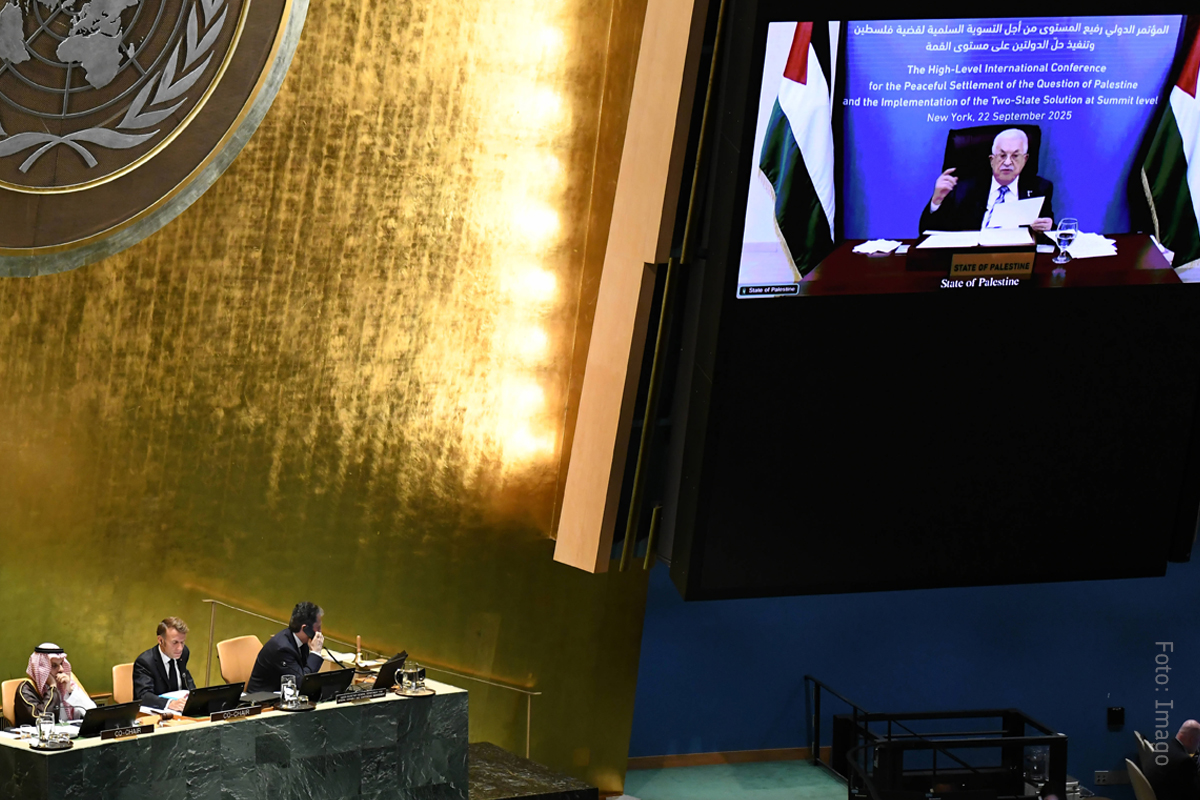“An Axis of Evil Against the Western World”

Arkady Mil-Man was Israeli ambassador to Russia and now heads the Russia program at the think tank Institute for National Security Studies (INSS) in Tel Aviv. In an interview with Till Schmidt, Mil-Man explains the role Russia played in Hamas’s attack on Israel and the relationship between the Russian and Iranian regimes.
How did the Russian regime respond to Hamas’ surprise terrorist attack on Israel?
Immediately after the attack, Putin did not say a single word condemning this terrible terrorist attack. Later, there were statements by him about the humanitarian situation in Gaza and warnings that the Israeli army should respond proportionately. But that is hypocrisy. Especially because Putin played with antisemitic resentments by also comparing Israel’s operation against Hamas in the Gaza Strip to the siege of Leningrad by the German Wehrmacht.
And today, almost three weeks after 7th of October?
To date, Putin has not condemned the reason for the IDF’s military action: that the terrorist organization Hamas infiltrated Israel and brutally killed over 1,400 people, injured more than 4,800 people, and took 229 hostages. Instead, Putin has blamed the US for the events in southern Israel, saying it ignored the interests of the Palestinians, including the need for an independent state of their own. This fits with Putin’s anti-Americanism.
Can you characterize Russia’s relationship with Hamas?
Russia does not classify Hamas as a terrorist organization, but as a legitimate political actor. The bilateral contacts date back to 2006. At that time, Hamas had democratically won the elections in the Gaza strip. Since then, there have been good contacts with Russia. High-level delegations have met in Moscow or in Arab countries. And again yesterday (Oct 26th; editor’s note), Hamas delegation headed by Abu-Marzook visited Moscow and met Russian deputy minister of Foreign Affairs.
The next day after the terrorist attack on Israel, a senior Hamas official gave an interview to Russia Today TV channel in Arabic. Ali Baraka, who is the Head of Hamas National Relations Abroad, said that the Russian leadership had granted Hamas a license to produce Kalashnikovs and related ammunition. Among other this type of machine guns had been used on October 7th. Baraka also claimed that half an hour after the beginning of the terrorist attack on Israel they updated their contacts in Moscow and received sympathy and support. This statement was not denied by the Russian side. This is striking – after all, Russia Today is a Kremlin channel.
What other contacts do you know about?
Wagner mercenaries have been suspected to have trained Hamas and Hezbollah terrorists in Lebanon and Syria. In addition, Hamas and Palestinian Islamic Jihad received above $130 million through crypto exchanges platforms controlled by Russia. In addition, the Hamas website domain has been on Russian servers for some time. So, there are certainly connections — even if the Russian regime repeatedly pretends to know nothing about them.
As its proxy, Hamas is significantly supported and upgraded by the Iranian regime. How do you characterize relations between Moscow and Tehran?
When Putin came to power in 2000, relations with Iran received a boost. But this was an asymmetrical relationship. Above all, Iran wanted from Russia weapons, military technology and especially support in developing the nuclear program. Russia had an interest in not supporting Iran too much.
A closer rapprochement occurred not only because Russia became increasingly authoritarian and totalitarian, but also in the wake of the sanctions resulting from the annexation of Crimea in 2014 and especially after February 24, 2022. Russia now wanted to find out how the Iranian regime dealt with the sanctions imposed against it. After the start of the Ukraine invasion and the subsequent sanctions, Iran welcomed Russia with open arms. Now a new phase of cooperation began. Both need each other.
What exactly are the core interests and businesses?
Russia is now partially dependent on the supply of Iranian weapons. First and foremost, these are drones (Unmanned Aerial Vehicles, UAV), but also various types of rockets, bullets and shells. Iran also helped building a drone factory east of Moscow. The Russian regime is still interested in learning how Iran manages to avoid and circumvent sanctions. The Russian financial system, which is excluded from the SWIFT transaction system, is now connected to the Iranian financial system. There is now also greater cooperation between business companies from both countries. Last summer, for example, cucumbers in the 20-million-metropolis of Moscow came mostly from Iran.
Both regimes have an enormous sense of mission, but do not sit so firmly in their saddle. That also makes cooperation dynamic. Where do you see conflicts of interest between the two powers?
Western sanctions against Russian oil have left Russia looking for alternative markets. This is the only way it can finance its war against Ukraine, for which Putin has no exit strategy. Above all, there is China – which according to its interests alternatively buys oil from Iran and Russia. In addition, Russia’s relations with Saudi Arabia are intended to keep oil prices up.
There is also a dispute between Iran and the Emirates over some islands in the Persian Gulf. Since relations with the Emirates are important to Russia because of economic relations that run under the radar of sanctions and the many Russians there, they are also opposing Iranian interests on this issue. There were also conflicts of interest in the issue of Nagorno-Karabakh. This is also the case in Syria, which is divided into different areas of influence.
How stable is the relationship between Russia and Iran?
We don’t know how long the marriage will last. As pariah states under sanctions, they currently form an axis of evil positioned against the Western world. However, in the future, there is a chance that both will decide to divorce. Should there be a dramatic change in the Russian regime or even an end to Putinism, relations with Iran would of course also change. The reverse also applies to the Iranian regime.
The nuclear dispute with Iran remains unresolved. What is Russia’s interest, role and influence that issue?
There is no doubt that Russia has contributed to strengthening Iran’s nuclear program. For Putin, chaos on the international stage is the best solution to his internal problems. We in Israel are very concerned that Russia will help Iran complete its nuclear program. For example, about the technology for producing nuclear weapons, activating them or building missiles with nuclear warheads.
Now, Iran has not yet decided to build a nuclear bomb, but they are close to it. This means that the international community can still stop the regime from doing so. An Iranian nuclear bomb not only poses an existential threat to our security as Israelis. The Iranian atomic bomb would change the architecture not only of the Middle East, but also of the entire world order. Russia pretends it has no interest in enabling Iran to develop a nuclear bomb, but the reality is more complicated.
Given Israel’s current war against Hamas and the possibility of regional escalation, how do you look at the likeliness of a revived or new nuclear deal?
In the first months of the war against Ukraine, there were still contacts between Russians and Americans with the aim of returning to the previous nuclear agreement, the JCPOA. The Russian envoy to the International Atomic Energy Agency (IAEA), for example, was very active here. But after the massacre in Bucha, these efforts were halted.
And how is the situation today?
Amid the immense tension in the Gaza Strip, with Hezbollah on Israel’s northern border, with two US aircraft carrier in the Mediterranean and President Biden’s clear warning to Iran – his two “Don’ts” –, with British ships and even a German unit in Cyprus, with repeated attacks on the American military bases in Syria and Iraq, – in such a situation it is simply impossible to resume talks or even negotiations with Iran. So, an agreement on the nuclear conflict is on hold and we have to see what the next steps are in our region. If these tensions can be reduced, then there may be some opportunities.
The interview has been conducted on October 24th, 2023, and reviewed for timeliness on October 27th.
Arkady Mil-Man heads the Russia program at the Israeli think tank Institute for National Security Studies (INSS) in Tel Aviv. He was Israeli ambassador to Russia from 2003 to 2006 and to Azerbaijan from 1997 to 2000. He now advises the armed forces and government on military action.
![]()
Did you like thike this article? If yes, you can support the independent editorial work and journalism of LibMod via a simple donation tool.
Donate via PayPal
![]()
We are recognized as a non-profit organization, accordingly donations are tax deductible. For a donation receipt (necessary for an amount over 200 EUR), please send your address data to finanzen@libmod.de
Related topics
Newsletter
Stay tuned with our regular newsletter about all our relevant subjects.





